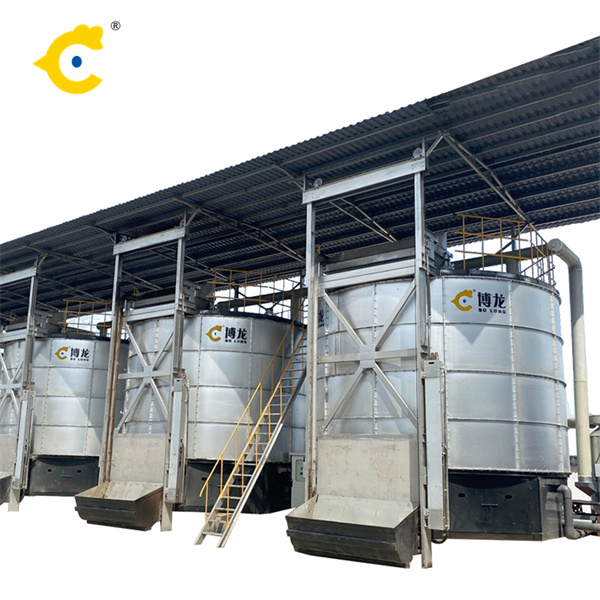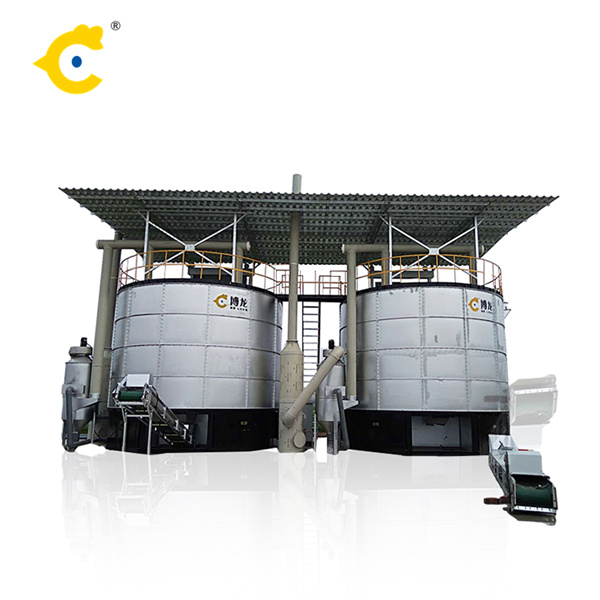Introduction
In recent years, the technology behind fermentation tanks has advanced significantly. These innovations are driven by the need for more efficient, environmentally friendly, and cost-effective solutions in organic waste management. This article explores the latest trends and future prospects in fermentation tank technology, highlighting how these advancements can revolutionize the industry.


Advanced Sensors and IoT Integration
Real-Time Monitoring Modern fermentation tanks are increasingly equipped with advanced sensors that provide real-time data on critical parameters such as temperature, moisture, oxygen levels, and microbial activity. This data can be accessed remotely through IoT (Internet of Things) integration, allowing operators to monitor and adjust the fermentation process from anywhere. This capability ensures optimal conditions are maintained, improving efficiency and consistency in compost production.
Predictive Maintenance IoT-enabled fermentation tanks can predict maintenance needs and potential issues before they occur. By analyzing data trends, these systems can alert operators to perform maintenance tasks or address minor issues before they become major problems. This proactive approach reduces downtime and extends the lifespan of the equipment, ultimately saving costs and improving reliability.
AI and Machine Learning
Optimization Algorithms Artificial intelligence (AI) and machine learning algorithms are becoming integral to the operation of fermentation tanks. These technologies analyze vast amounts of data from the fermentation process to identify patterns and optimize parameters for maximum efficiency. For instance, AI can adjust temperature, aeration, and mixing speeds to ensure the fastest and most effective composting process.
Autonomous Operation The future may see fermentation tanks operating almost entirely autonomously. AI systems could manage loading, fermentation, and discharge processes without human intervention. This level of automation would not only increase efficiency but also reduce the need for labor, allowing operators to focus on other critical tasks.
Enhanced Energy Efficiency
Renewable Energy Integration To address the growing concern over energy consumption and environmental impact, future fermentation tanks will likely integrate renewable energy sources such as solar panels and wind turbines. These energy sources can power various components of the tank, reducing reliance on fossil fuels and lowering operational costs.
Energy Recovery Systems Advanced heat exchange systems can recover and utilize more energy generated during the fermentation process. For example, the heat produced by microbial activity can be captured and used to preheat incoming materials or maintain optimal internal temperatures, further enhancing energy efficiency.
Sustainable Design and Materials
Eco-Friendly Materials Future fermentation tanks will incorporate more eco-friendly materials, including biodegradable and recycled components. Using such materials in construction reduces the environmental footprint of the tanks and supports broader sustainability goals.
Modular Design Modular design is another significant trend. This approach allows for easy expansion and customization of fermentation tanks to meet varying capacity needs and handle different types of organic waste. Additionally, modular components simplify maintenance and repairs, reducing downtime and extending the tanks’ operational life.
Enhanced Fermentation Processes
Microbial Engineering Advances in biotechnology are paving the way for customized microbial strains tailored to specific types of organic waste. These engineered microbes can accelerate the fermentation process, improve the quality of compost, and ensure more efficient waste decomposition.
Multi-Stage Fermentation Future fermentation tanks may incorporate multi-stage processes that optimize different phases of decomposition. This approach can enhance the overall efficiency of the fermentation process and produce higher-quality compost with better nutrient profiles.
Integration with Circular Economy
Closed-Loop Systems Fermentation tanks will play a crucial role in developing closed-loop systems where organic waste is continuously converted into valuable resources like compost, biogas, and biofuels. These systems help minimize waste, reduce environmental impact, and promote sustainable practices.
Digital Platforms Digital platforms will facilitate data sharing and collaboration among different stakeholders in the organic waste management industry. These platforms can promote best practices, innovation, and create online marketplaces connecting compost producers with consumers, further supporting the circular economy.
Conclusion
The future of fermentation tank technology is promising, with advancements in smart technology, energy efficiency, sustainable design, enhanced fermentation processes, and integration with the circular economy. These trends will make fermentation tanks more efficient, environmentally friendly, and economically viable, transforming the organic waste management industry. Bolong, as a leading provider of fermentation tanks, is at the forefront of these innovations, ensuring that its products continue to meet the evolving needs of the industry. By staying informed about these future trends, you can make informed decisions and invest in technology that will enhance your waste management processes and contribute to a more sustainable future.
